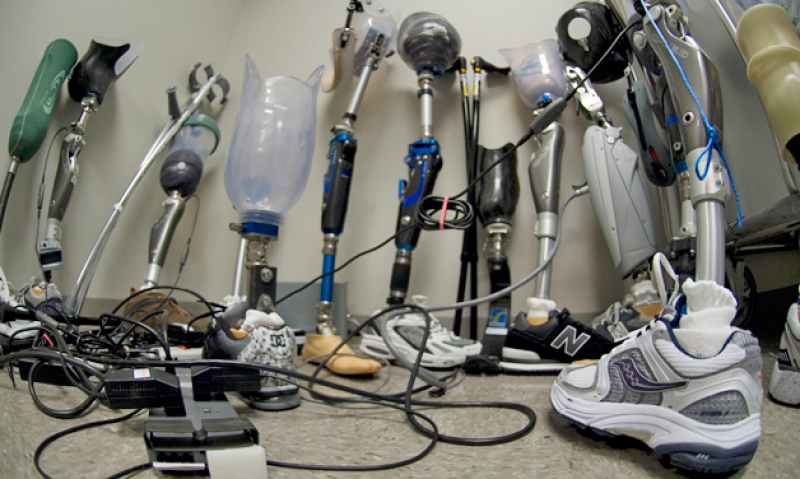
VA centralizes prosthetics procurement
The Department of Veterans Affairs is changing its way of procuring prosthetic limbs and devices, moving to a more centralized approach that takes the purchasing power away from private-sector providers and shifts it to VA contracting officers.
In a July 30 conference call with The American Legion and other stakeholders, Dr. Robert Petzel discussed VA’s shift to a general-acquistions strategy and said that several VA pilot programs are doing well.
When asked by the Legion why VA had decided to centralize its procurement operations for prosthetics, rather than work through the private-sector, Petzel – VA’s under secretary for Health – said the new system will save money for VA.
"We realize that VA, like DoD and other federal agencies, needs to find ways to cut costs," said Jacob Gadd, deputy director of the Legion’s Veterans Affairs & Rehabilitation Division. "And we hope this new procurement system does just that. But we also want to be sure that VA provides the best care and the best prosthetic equipment to our wounded warriors."
On Feb. 15, The American Legion testified on medical and prosthetic research before the House Committee on Veterans’ Affairs. It noted that DoD had responded effectively to the needs of amputee patients by creating centers of excellence for traumatic extremity injuries and amputations, which "have made landmark strides in providing the most cutting-edge treatment and technology to help injured servicemembers deal with these catastrophic injuries."
Gadd said the Legion is concerned that, once wounded troops leave active duty and enroll in the VA system, they may not receive the same level of care or prosthetic equipment. "We understand that VA has more than 1,700 medical facilities to support, while DoD concentrates their treatment in a small number of facilities," Gadd said. "So VA needs a budget that can completely cover the needs of its patients who use prosthetics."
While VA’s pilot programs are processing an average of two to three prosthetic orders per day, the department’s goal is an average of four orders per day. The deadline for implementing VA’s nationwide procurement program was moved from July 1 to Sept. 30 to provide more training for contracting officers.
"The Legion will be setting up a meeting with VA officials very soon, so we can get a better understanding of how our veterans with protheses will benefit from the centralization of procurement," Gadd said. "Exactly how will ordering such specialized equipment be better-managed by VA contracting officers, instead of the folks who work with prosthetics on a daily basis?"
The House Committee on Veterans’ Affairs Subcommittee on Health is holding a hearing this afternoon; it will get an update on prosthetics procurement and care from Petzel and other VA officials. National staff from the Legion’s Legislative Division will attend.
